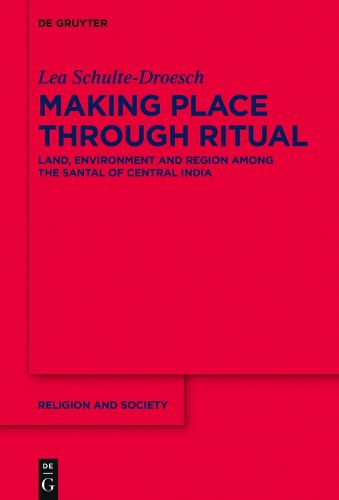Readings Newsletter
Become a Readings Member to make your shopping experience even easier.
Sign in or sign up for free!
You’re not far away from qualifying for FREE standard shipping within Australia
You’ve qualified for FREE standard shipping within Australia
The cart is loading…






This title is printed to order. This book may have been self-published. If so, we cannot guarantee the quality of the content. In the main most books will have gone through the editing process however some may not. We therefore suggest that you be aware of this before ordering this book. If in doubt check either the author or publisher’s details as we are unable to accept any returns unless they are faulty. Please contact us if you have any questions.
Indian indigenous societies are especially known for their elaborate rituals, which offer an excellent chance for studying religion as practice. However, few detailed ethnographic works exist on the ritual practices of these societies. Based on long-term ethnographic fieldwork in Jharkhand, India this book offers insights into contemporary, previously not described rituals of the Santal, one of the largest indigenous societies of Central India. Its focus lies on culturally specific notions of place as articulated and created during these rituals.
In three chapters the book discusses how the Santal make place on different local, regional and global levels through their rituals: They reaffirm their ancestral roots in their land during large sacrificial rituals. They offer sacrifices to the dangerous deities of the forest in exchange for rain. And they claim their region to be a Santal region through large festivals celebrated in sacred groves, which they link to national and global discourses of indigeneity and environmentalism.
Through an analysis of the rituals of a specific society, this book addresses broader issues. It presents an example of how to study religion as a practical activity. It portrays culture-specific perceptions of the environment. And last, the book underlines the potential that lies in choosing place as a lens to study social phenomena in context.
$9.00 standard shipping within Australia
FREE standard shipping within Australia for orders over $100.00
Express & International shipping calculated at checkout
This title is printed to order. This book may have been self-published. If so, we cannot guarantee the quality of the content. In the main most books will have gone through the editing process however some may not. We therefore suggest that you be aware of this before ordering this book. If in doubt check either the author or publisher’s details as we are unable to accept any returns unless they are faulty. Please contact us if you have any questions.
Indian indigenous societies are especially known for their elaborate rituals, which offer an excellent chance for studying religion as practice. However, few detailed ethnographic works exist on the ritual practices of these societies. Based on long-term ethnographic fieldwork in Jharkhand, India this book offers insights into contemporary, previously not described rituals of the Santal, one of the largest indigenous societies of Central India. Its focus lies on culturally specific notions of place as articulated and created during these rituals.
In three chapters the book discusses how the Santal make place on different local, regional and global levels through their rituals: They reaffirm their ancestral roots in their land during large sacrificial rituals. They offer sacrifices to the dangerous deities of the forest in exchange for rain. And they claim their region to be a Santal region through large festivals celebrated in sacred groves, which they link to national and global discourses of indigeneity and environmentalism.
Through an analysis of the rituals of a specific society, this book addresses broader issues. It presents an example of how to study religion as a practical activity. It portrays culture-specific perceptions of the environment. And last, the book underlines the potential that lies in choosing place as a lens to study social phenomena in context.